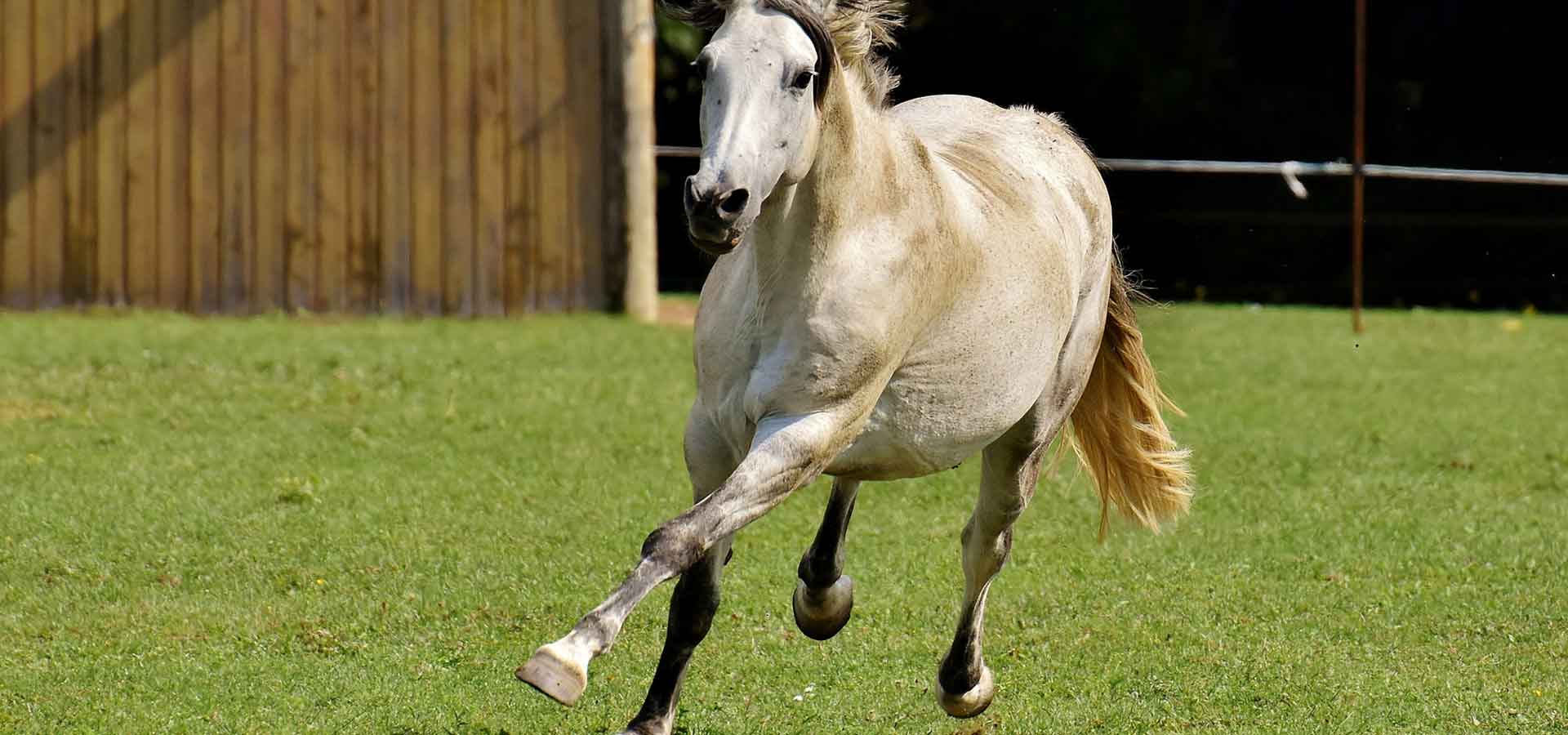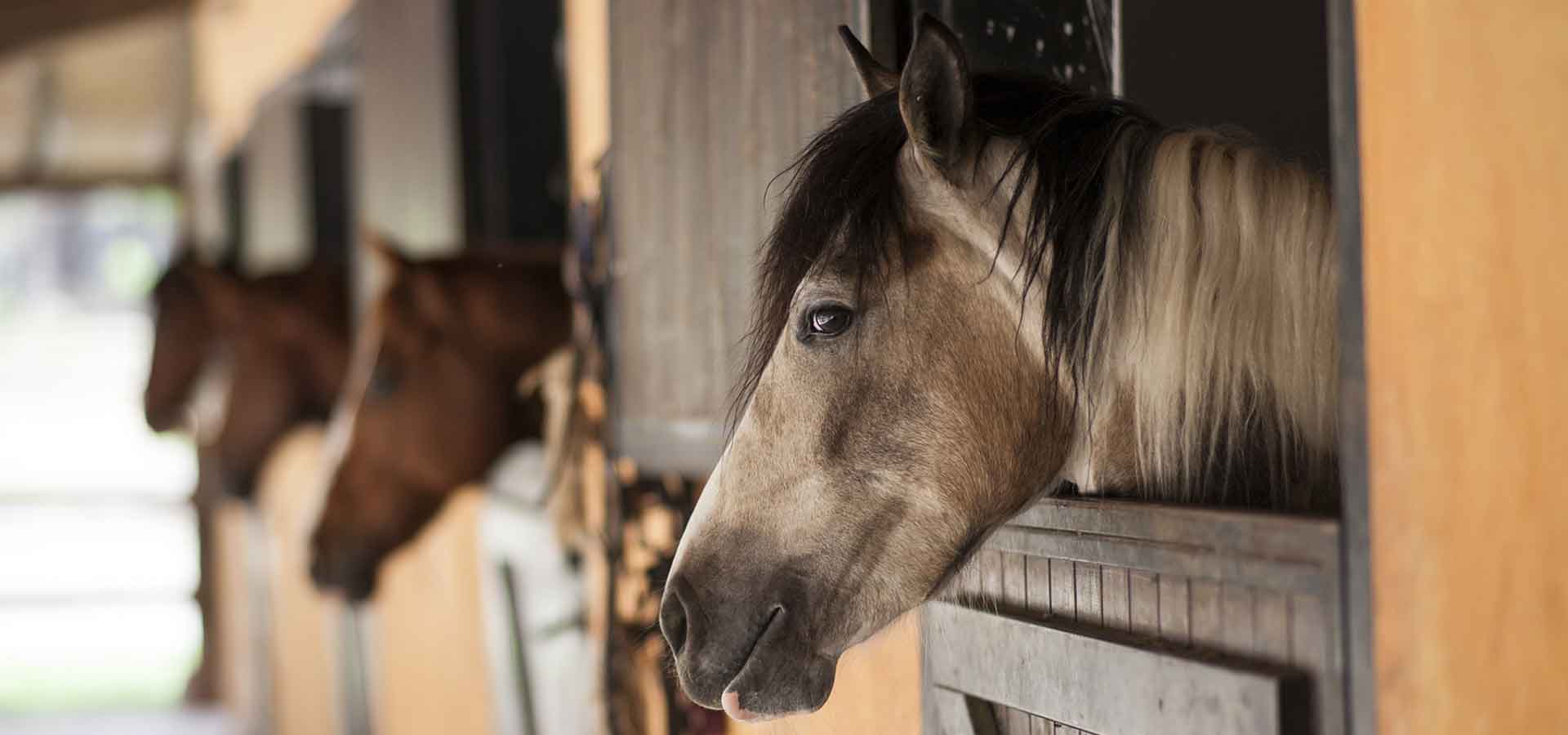Maintaining your horse's hooves is critical to keep them healthy and in great condition. Horses hooves receive a lot of impact through the weight of the horse and so, to keep them in pristine condition you will need to pay close attention to the horse's diet and the nutrients that they receive. As with any domestic pet, you must pay close attention to the food they eat and ensure that they're getting everything they need so their vital organs, skin, hair and general well-being remains healthy.
Feeding your horse the correct diet and nutrients
Looking after a horse requires a different approach when caring for their hooves, as their hooves are connected by nerves and connective tissues, which requires more attention to the vitamins, minerals, and nutrients they are fed.
The horse's hoof is made up of keratin and protein. The horse's diet should consist of fatty acids, glucose, and good quality protein. Any protein fed to your horse should consist of all if amino acids, which are essential to great hoof care. Not feeding them the correct amount of amino acids can lead to health issues later on in the horse's age.
What are the correct nutrients?
Vitamins are also essential for great hoof care. The horse is able to produce a lot of vitamins through their own body mechanisms. However, this does not include vitamin E and A. Feeding your horse good green quality forage will provide a horse all the necessary vitamin requirements such as; Vitamin D, A, K, E and a few Vitamin B’s.
You should always check with your vet regarding the correct amount of vitamins, as this is essential to maintain the quality of their feet, as well as being good for your horse's health. Not providing enough vitamin A can bring coronary band issues that involve inflammation.
As part of a healthy well-balanced diet, your horse will need the correct amount of minerals which help with support the keratin found in the hoof. Minerals should also be given to your horse as an additional supplement. Minerals such as; Calcium, Selenium, Zinc, and Manganese. These can all be purchased from a reputable veterinary practice.
As part of a healthy diet for your horse, they also need to be fed copper. This can be fed through most natural feeds but are often not enough required for horses. But most equine produced feeds contain the correct levels. You will need to speak to your local vets of additional supplements of copper as this plays an important part in their healthy diet.
The role of genetics
Genetics play a vital part in the condition of a horse's hooves, this is narrowly followed by their nutritional needs and the amount of exercise they require. Certain breeds of horses get strong hooves from inheritance, whereby other breeds are understood to have weaker feet and require more care and here is where the diet needs to be correct so you can supplement the horse with the nutrition's that they are lacking. Not looking after your horse feet properly during a season can cause huge amounts of unnecessary suffering for your horse's feet.
Keep your horse active
Horses that are less active, or in low work are able to handle lack of vitamins better than a horse that's very active, although this should never be the case, all horses should be fed the correct nutrients and diet. Any horse can develop issues and be susceptible to imbalances and deficiencies at certain stages of their life.
As your horse ages, their health will need extra attention and you will need to provide them with more nutrients and supplements in their diet. If you’re unsure of what you should be feeding your horse it's best that you speak to your vet or an equine specialist.


